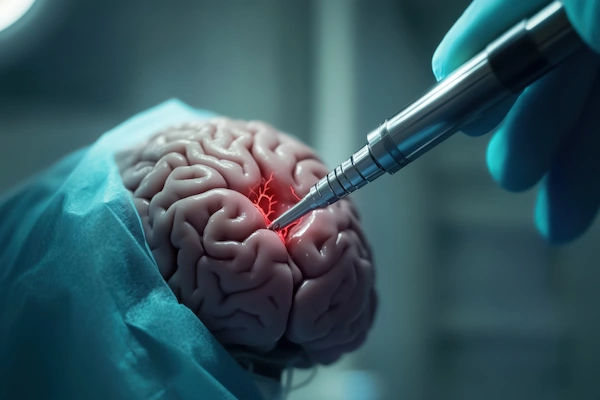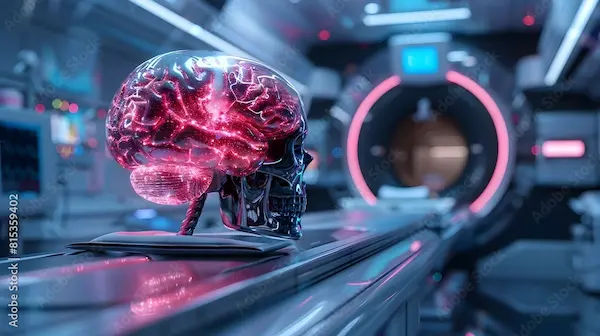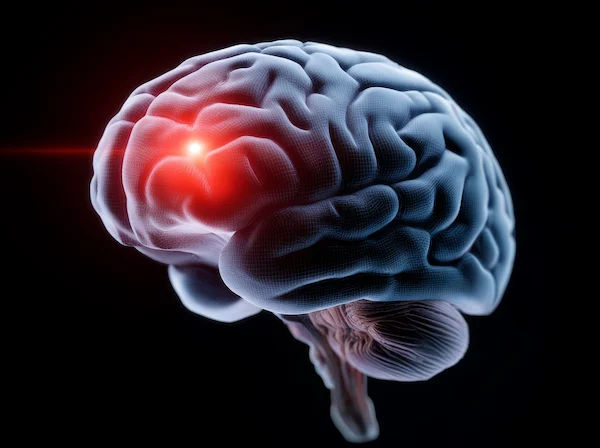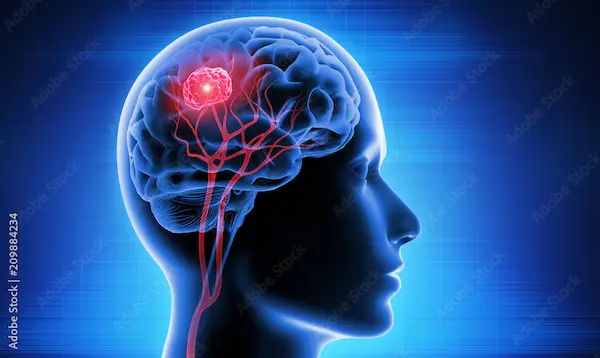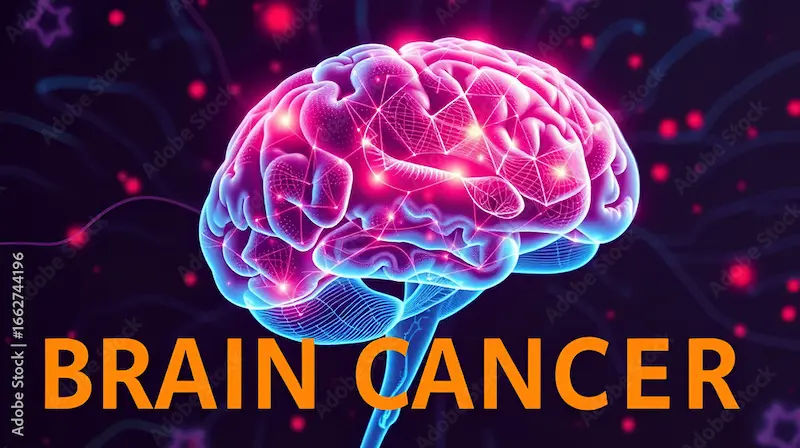Brain Tumours: Types, Symptoms and Treatment
Learn about brain tumours, their types, common symptoms, and available treatment options to better understand diagnosis and management.


Introduction
That nagging headache that won’t quit, a sudden bout of dizziness, or a change in vision, it’s natural for your mind to jump to the worst-case scenario, including a brain tumour. While these symptoms are most often caused by far less serious conditions, understanding brain tumours is the first step toward addressing fears and taking informed action. This guide demystifies brain tumours, breaking down the complex medical jargon into clear, actionable information. We will walk you through everything from the early signs and different types to the latest diagnostic tools and treatment options. Knowledge is power, and our goal is to empower you to have productive conversations with healthcare professionals about your neurological health.
What is a Brain Tumour? A Basic Definition
A brain tumour is a mass or growth of abnormal cells in or around the brain. Our skull is rigid, providing essential protection, but it also means any uncontrolled growth inside this confined space can create pressure on sensitive brain tissue, leading to a range of health problems. It's crucial to understand that not all brain tumours are cancerous. The distinction between benign (non-cancerous) and malignant (cancerous) tumours is central to diagnosis and treatment.
Primary vs. Metastatic Brain Tumours
This is a fundamental classification. Primary brain tumours originate in the brain itself. They can be benign or malignant. Metastatic (or secondary) brain tumours are more common. These are cancerous tumours that have spread to the brain from another part of the body, such as the lung, breast, kidney, or skin (melanoma). Their treatment is often linked to treating the original cancer.
Consult a Neurosurgeon for the best advice
Common Types of Brain Tumours
There are over 120 different types of brain tumours, named after the cells or tissues from which they arise.
Gliomas
These tumours begin in the glial cells, the supportive tissue of the brain. They are often malignant and account for a significant portion of primary brain cancers. Types include:
- Glioblastoma: An aggressive, fast-growing grade 4 glioma.
- Astrocytoma: Arises from astrocytes and can vary from slow-growing to highly aggressive.
- Oligodendroglioma: A rarer type that tends to have a better prognosis.
Meningiomas
Making up about 30% of all brain tumours, these are the most common primary brain tumours. They develop from the meninges (the membranes surrounding the brain and spinal cord). Most are benign and slow-growing, often discovered incidentally. However, their location can still cause serious problems due to pressure on the brain.
Other Common Types
- Acoustic Neuromas (Schwannomas): Benign tumours on the nerve leading from the inner ear to the brain, affecting hearing and balance.
- Pituitary Adenomas: Tumours on the pituitary gland at the base of the brain. They are typically benign but can disrupt the body's hormone levels, causing wide-ranging endocrine symptoms.
Recognising the Signs: Symptoms of a Brain Tumour
The symptoms of a brain tumour are incredibly varied and depend on the tumour’s size, location, and rate of growth. Many symptoms overlap with those of far less serious conditions, like migraines or stress.
General Symptoms Caused by Pressure
- New or changing headaches: Often worse in the morning or waking you up at night.
- Unexplained nausea or vomiting.
- Vision problems: Blurred vision, double vision, or loss of peripheral vision.
- Seizures, especially in someone with no prior history.
- Gradual loss of sensation or movement in an arm or leg.
Focal Symptoms Based on Tumour Location
- Frontal Lobe: Changes in personality, judgment, or reasoning; loss of movement on one side.
- Temporal Lobe: Difficulty understanding language, memory issues.
- Parietal Lobe: Problems with sensory perception and spatial reasoning.
- Cerebellum: Loss of coordination, balance, and fine motor skills.
If you experience a new, persistent, or worsening cluster of these neurological symptoms, it is essential to consult a doctor. You can book an online consultation with a neurologist on Apollo24|7 for an initial evaluation and to discuss the need for further tests.
How Are Brain Tumours Diagnosed?
Diagnosis begins with a thorough medical history and a neurological exam to test vision, hearing, balance, coordination, strength, and reflexes.
Imaging Tests: MRI and CT Scans
An MRI (Magnetic Resonance Imaging) scan is the gold standard for detecting brain tumours. It provides detailed cross-sectional images of the brain, often using a contrast dye to highlight abnormalities. A CT (Computerised Tomography) scan may be used in emergencies to quickly identify bleeding or a large mass.
Biopsy and Pathological Analysis
A biopsy is the only definitive way to diagnose a brain tumour's type and grade. It involves removing a sample of tissue (often during surgery to remove the tumour) for a pathologist to analyze under a microscope. This analysis determines whether the tumour is benign or malignant and its genetic makeup, which is critical for planning treatment. Apollo24|7 offers convenient home collection services for blood tests that may be required as part of your pre-operative workup or to monitor your overall health during treatment.
Get Your Health Assessed
Modern Treatment Pathways for Brain Tumours
Treatment is highly personalised, depending on the tumour’s type, grade, location, and the patient’s overall health. A multidisciplinary team of neurosurgeons, oncologists, and radiologists works together.
Surgery: The First Line of Defense
The primary goal of surgery is to remove as much of the tumour as possible without damaging critical neurological function. Techniques like craniotomy (opening the skull) and awake brain surgery (where the patient is awake to help surgeons map critical brain areas) maximise tumour removal while preserving quality of life.
Radiation Therapy
This treatment uses high-energy beams, like X-rays or protons, to kill tumour cells. It’s often used after surgery to target remaining cells or for tumours that are inoperable. Advanced techniques like stereotactic radiosurgery (e.g., Gamma Knife) deliver highly focused radiation to minimise damage to surrounding tissue.
Chemotherapy and Targeted Drug Therapy
Chemotherapy uses powerful drugs to kill fast-growing cells. It can be administered orally or intravenously. Targeted therapy is a more recent advancement that focuses on specific abnormalities present within cancer cells. By blocking these abnormalities, targeted drug treatments can cause cancer cells to die.
Life After Diagnosis: Prognosis and Recovery
A brain tumour diagnosis is life-altering, but outcomes have improved significantly with modern medicine.
Factors That Influence Prognosis
The prognosis, or outlook, depends on several factors: the tumour’s type and grade, its location and how much could be removed, the patient’s age, and overall health. For example, a benign, completely removable meningioma often has an excellent prognosis, while a glioblastoma presents greater challenges.
Rehabilitation and Supportive Care
Recovery often doesn't end with treatment. Many patients benefit from rehabilitation to regain lost functions:
- Physical therapy to rebuild strength and balance.
- Occupational therapy to relearn everyday tasks.
- Speech therapy to address language and swallowing difficulties.
- Ongoing support from counselors, support groups, and palliative care teams is also vital for managing the emotional and physical side effects.
Conclusion
Navigating the possibility or reality of a brain tumour can feel overwhelming. However, arming yourself with knowledge transforms fear into empowerment. Understanding the symptoms empowers you to seek timely help. Knowing the types and treatment options allows you to engage meaningfully with your healthcare team and make informed decisions about your care. Remember, you are not alone on this journey. A vast network of neurospecialists, oncologists, therapists, and support groups is dedicated to providing cutting-edge treatment and compassionate care. If you have any concerns about your neurological health, take that proactive step; consult a doctor online with Apollo24|7 to get the answers and guidance you need to move forward with confidence.
Consult a Neurosurgeon for the best advice
Consult a Neurosurgeon for the best advice

Dr. Gopal Achari
Neurosurgeon
20 Years • MBBS, MS (GEN SUR), MCH (NEURO SUR)
Kolkata
Apollo Multispeciality Hospitals , Kolkata, Kolkata

Dr. Aditendraditya Singh Bhati
Neurosurgeon
21 Years • MBBS(2004), DNB Neurosurgery(2014); MNAMS; Fellow Skull Base Endoscopy (Italy), Fellow Extended Skull Base ( Weill Cornell, USA), Fellow ZAP-X Radiosurgery. Member of American Association of Neurological Surgeons
Delhi
Apollo Hospitals Indraprastha, Delhi
(100+ Patients)

Dr Debnath Dwaipayan
Neurosurgeon
9 Years • MBBS, MS(Gen. Surgery), DrNB (Neurosurgery)
Delhi
Apollo Hospitals Indraprastha, Delhi
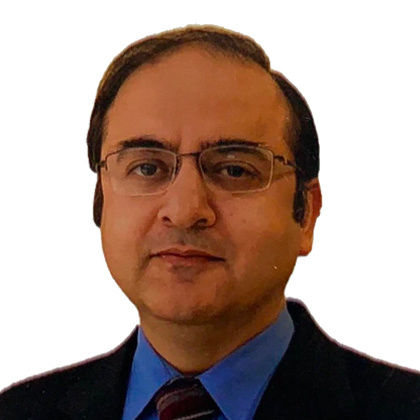
Dr. Sunit Mediratta
Neurosurgeon
20 Years • MBBS, MS, MCh, DNB, MNAMS
Delhi
Apollo Hospitals Indraprastha, Delhi
Dr Madhukar T Nayak
Neurosurgeon
25 Years • MBBS, MS (General Surgery), DNB (Neuro Surgery), Fellowship in Neuroendovascular Therapy, Fellowship in Neuro Endoscopic Surgery
Mumbai
Medicover Hospitals., Mumbai
Consult a Neurosurgeon for the best advice

Dr. Gopal Achari
Neurosurgeon
20 Years • MBBS, MS (GEN SUR), MCH (NEURO SUR)
Kolkata
Apollo Multispeciality Hospitals , Kolkata, Kolkata

Dr. Aditendraditya Singh Bhati
Neurosurgeon
21 Years • MBBS(2004), DNB Neurosurgery(2014); MNAMS; Fellow Skull Base Endoscopy (Italy), Fellow Extended Skull Base ( Weill Cornell, USA), Fellow ZAP-X Radiosurgery. Member of American Association of Neurological Surgeons
Delhi
Apollo Hospitals Indraprastha, Delhi
(100+ Patients)

Dr Debnath Dwaipayan
Neurosurgeon
9 Years • MBBS, MS(Gen. Surgery), DrNB (Neurosurgery)
Delhi
Apollo Hospitals Indraprastha, Delhi

Dr. Sunit Mediratta
Neurosurgeon
20 Years • MBBS, MS, MCh, DNB, MNAMS
Delhi
Apollo Hospitals Indraprastha, Delhi
Dr Madhukar T Nayak
Neurosurgeon
25 Years • MBBS, MS (General Surgery), DNB (Neuro Surgery), Fellowship in Neuroendovascular Therapy, Fellowship in Neuro Endoscopic Surgery
Mumbai
Medicover Hospitals., Mumbai
More articles from Brain Tumor
Frequently Asked Questions
What does a brain tumour headache feel like?
A classic brain tumour headache is often described as a persistent, dull ache that is worse in the morning or wakes you from sleep. It may be accompanied by nausea, vomiting, or worsen with coughing, straining, or changing position. However, headaches are rarely the only symptom.
Can a benign brain tumour be fatal?
Yes, even a benign brain tumour can be serious or fatal if it is located in a critical area of the brain where it causes pressure that damages vital structures. This is why location is often as important as whether a tumour is cancerous.
What are the main causes of brain cancer?
For most primary brain tumours, the cause is unknown. The only well-established environmental risk factor is significant exposure to ionizing radiation. A small percentage are linked to inherited genetic syndromes or a family history of brain tumours.
What is the survival rate for a glioblastoma?
Glioblastoma is an aggressive cancer. The relative 5-year survival rate is around 6.8%, but this is a statistic that encompasses a wide range of individual outcomes. Age, overall health, and the specific genetic markers of the tumour can significantly influence prognosis, and new treatments are continually being developed.
Can you prevent brain tumours?
There is no known way to prevent most brain tumours. Since the only confirmed environmental risk is high-dose radiation, avoiding unnecessary exposure to such radiation is the best known preventive measure. Maintaining a healthy lifestyle is always recommended for overall well-being.

